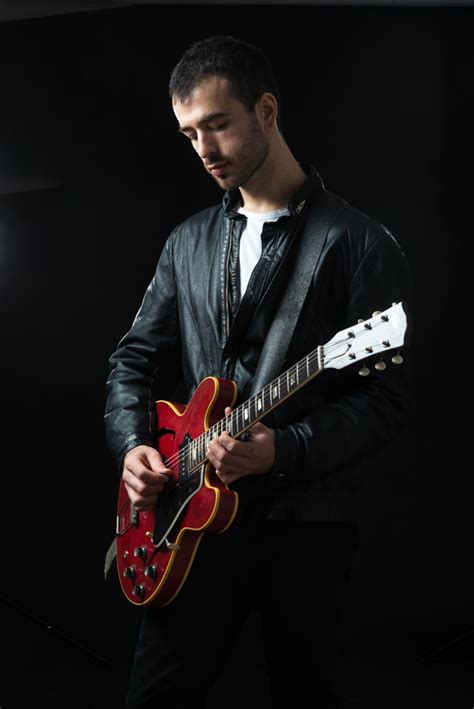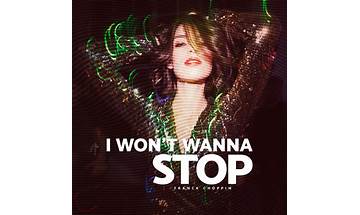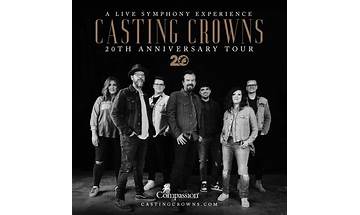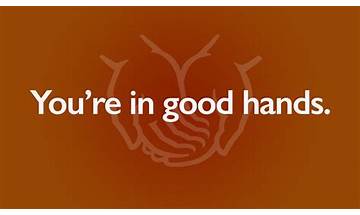Hip Hop News: Killer Mike is Not Your Messiah (2025)
St. Ann & the Holy Trinity Church in downtown Brooklyn is across the street from the city’s courthouses. Inside the church is quiet and serene, people dispersed throughout the pews awaiting the night’s sermon. The pastor for the service is Killer Mike, a man who stands with a 6-foot stature and is built like a linebacker. The ATL rapper, who is dressed in a Lent purple suit with a black turtleneck underneath, stands behind a podium, dazzling gold chains around his neck and sunglasses to concealSt. Ann & the Holy Trinity Church in downtown Brooklyn is across the street from the city’s courthouses. Inside the church is quiet and serene, people dispersed throughout the pews awaiting the night’s sermon. The pastor for the service is Killer Mike, a man who stands with a 6-foot stature and is built like a linebacker. The ATL rapper, who is dressed in a Lent purple suit with a black turtleneck underneath, stands behind a podium, dazzling gold chains around his neck and sunglasses to conceal

St. Ann & the Holy Trinity Church in downtown Brooklyn is across the street from the city’s courthouses. Inside the church is quiet and serene, people dispersed throughout the pews awaiting the night’s sermon. The pastor for the service is Killer Mike, a man who stands with a 6-foot stature and is built like a linebacker. The ATL rapper, who is dressed in a Lent purple suit with a black turtleneck underneath, stands behind a podium, dazzling gold chains around his neck and sunglasses to conceal his eyes.
Mike’s sermon is his new album, MICHAEL — a work he considers his most personal yet. The album, which he is playing for a small audience, tells the origin story of one of the great Southern rappers.
MICHAEL, which exective produced by No I.D., is Killer Mike’s first solo record since 2012’s R.A.P. Music, and it’s a love letter to growing up in Atlanta, and the virtues and values that were learned through the myriad of obstacles Mike faced in his adolescence. With a runtime of under an hour, MICHAEL stays grounded in the sounds of old and new Atlanta. MICHAEL contains an impressive list of guest features from CeeLo Green, Jagged Edge, and André 3000 to Young Thug, 6LACK, and Future. “Every emotion that you're feeling is one that we're trying to evoke and pull out of you,” Mike later told Okayplayer.
A month later, Okayplayer meets up with Killer Mike In a luxury hotel located in the lower east side of Manhattan. He is radiant in pride — it’s a few hours before the release of MICHAEL. Mike talked to Okayplayer about the making of his new album, memories of growing up in Atlanta, and his recent controversies in politics.
You talk about the early days of struggle with your family under a single mother household. Was there any particular memory for you that popped up in your head when you were writing this album?
My mother attempted suicide in front of me when I was 19-years-old. And I never even thought she cared about religion or even believed in God. And when I was holding her wrist together, pressed so she didn't bleed out, and I remember her just singing “Swing Low, Sweet Chariot.” And I'm just like, "Oh my God, she's going to die. She's singing." And I'll never forget she was, at that time, if you attempted suicide, someone had to sign you out. You couldn't just get out of the psych ward. And she had to spend two weeks there. And my grandmother was so happy. But my mom was just kind of leaning and laying there kind of semi smiling. And my grandmother's sitting there smiling ear to ear because her baby had finally gotten her issue addressed. We didn't know my mom was manic depressive and bipolar. We knew she was deeply sensitive, which I understood led her to addiction. But my grandmother was so happy in the moment that she had control and autonomy over her baby girl, the only child she could have out of her womb.
I'll never forget that time, we were at the place and there was a woman who was obviously schizophrenic and paranoid. She was just going on and on. And this other big woman that had been sexually abused, I just told her, "Shut up." And the lady wouldn't listen to her, and the big woman just hit her. And I was like, "Oh shit." And the lady just shut up. And my mama told my mom, she said, "Mama, I'm sorry. Listen, I was playing crazy. Mama's not crazy. These bitches crazy for real!" And my grandmother was so content to be able to tell my mother, "No, you're going to stay in here with her." And I thought about that in the other utter ridiculousness of it all that it was just a mom and a daughter. Their dynamic was always kind of a go back and forth, especially over me, because my mother was a lot younger.
“Run” is the first single. It features a verse from Young Thug who is facing RICO charges right now. You recently spoke against rap lyrics being used in court for the foundation for individual rights and expression here in NYC back in April. So you want to go into that a bit more?
I just want to say that people out there — especially people that like me are browner than a piece of notebook paper — the world is very dangerous for us in terms of rights and privileges, which is why I'm in no rush to give them up. This Constitution promises or it recognizes the rights of all of us, starting with freedom of speech. Then going into another, one of my favorites, the Second Amendment and things of that nature. But I just think that laws that seek to control what you think and speak, they're always going to affect us first and worst. And the danger in that is, I may think I'm shutting off speech I don't want to hear, but I'm honestly shutting off an opportunity for me to speak. Everyone does not have the opportunity to speak up for themselves against the state. And the scary part is when the state starts to use your speech as a bludgeon or against you in terms of being able to prosecute you, hate speech, things of that nature.
This album also is grounded in the sound in Atlanta. Was that the intention?
I needed to go home to church. So the sounds come directly out of gospel. They come directly out of soul like Donny Hathaway and Curtis Mayfield. I wanted the listener to come into the world of Michael and stay there for 55 minutes. I wanted this record to be listened to from start to finish. When you are at the crib, close your eyes, see the visuals, see the character. Or if you're driving, take 55 minutes, you're driving. See it and feel the lushness of the music. I have five different mixes on this. I spent over half a million dollars—didn't tell my wife— of my money. I didn't borrow that money from anyone. That's my money. And once I was about a quarter million dollars in, I was like, oh well, there's no turning back now.
“TALK'N THAT SHIT!” is one of my favorite tracks.
Yeah, [DJ Paul] went crazy. Three different beats, three different flows. Rest in peace to Lola, man — Gangsta Boo. I knew that I wanted the record to be distinctly southern and I knew I wanted it to be based in the sounds that I had been reared around, around church and soul. And there's just something about Memphis music that you can take a soul sample to Miami, to Atlanta, to Memphis, to Houston, New Orleans and those producers are going to do it and chop it in a different way. And there's just something about what Paul and [Juicy J] were able to do with the sound of Three 6 Mafia. I've always loved it, I've worked with them once. But Paul came through and he dropped off some tracks, and we heard these three and we were like, "Could you chop these up and make these one thing?" And he did. But I just, man... A Three 6 Mafia beat or a DJ Paul beat is comparable to a secular version of catching the Holy Ghost. You can't even control what you are going to do, you are just going to move and bop and bounce.
Getting André 3000 on a track is a marvel in itself. If you don't mind telling me, how'd that come into fruition?
Man, shit, I've been trying to get Dré on a Run the Jewels track for the last decade. And he'd hear them and be like, "Man, that shit hard and I love what y'all doing..." But, you know, he just wasn't in the space where he was wanting to rap or felt like those were the records. And I respect that about Dré 'cause he operates purely from a place that, does the emotion move him to do it? And that's art at its purest level. So this time around I didn't even ask him to be on it, I just wanted him to hear the record. I just cared what him and Big Boi thought about the record. So I played it for them and then he said, "You mind if I come back tomorrow and play some stuff for you?" It's like, "Damn, I don't mind at all. Come hang out." And he came back the next day with me, him and No I.D. And he came in and man, he left some joints with us. And afterwards I remember me and Cuz Lightyear just sitting there and just like, "Man, the fuck we going to do?" Cuz's like, "We using something. I don't care what they sound like, we using something." And we picked two initially. And one he took back 'cause he was going to finish the record himself — it was more of a singing record. But he left that verse with us and that beat.
"Motherless" is the most heartfelt song on the album. How cathartic is it to write a song like that?
I had never even said my mother was dead before that record. Before you hear me say, "My mama dead, my grandmama dead." I accepted it in the booth. And I don't write, it just kind of comes through me. And I cried like a baby rapping that verse. And then [Eryn Allen Kane] came in with her vocals. And I tried to run away from doing it. That first beat, I told [No I.D.] "I don't like the beat. I don't..." And he changed the beat right there in the studio. Man, I love them and I miss them so much. My grandmother was... I can recall when she was in her 50s, 60s, after her mother died. My grandmother would just talk about how much she missed her to the day she died. And I didn't understand it, and I understand it now. My mother told me, she said, "I know you love your grandmother like your mother, but I'm your mother. And you're going to understand one day, I'm going to die and you're going to feel how I feel." And man, I didn't understand until she died. And every day since I wanted to call her and say, "You're right. I fucked up."
When you decided to make a solo record, what was EL-P's sentiments?
At the time, EL was scoring this movie [Capone]. It was [during COVID-19] and there was nothing to do. He was working. I was like, well shit, I may as well [work too.] And it was that. So EL's always been supportive. And his thing was, he was just like, "Yo, save me a spot on it." And I'm like. "Abso-fucking-lutely." And there you have “Don't Let the Devil.”
Do you and EL-P have similar politics?
Well, EL is not very political. I'm political by... I never had a choice. I've been involved in every election in Atlanta since I was five years old and at my grandmother's hip. That's [Andrew Young] all the way through Mayor Andre Dickens. So I never had a choice. My grandmother said, "A part of your civic duty is to be politically active on a hyper local level." So who's going to be President, I don't fucking fight with people about. But who's going to be my city councilperson, who's going to be my commissioner, who's going to be my mayor, police chief, judges, prosecution [matters to me.]
I have to be a part of, because it affects me on a daily basis. But in terms of whether me and EL's politics match up, I don't know. Because we don't know all of each other's politics, because I don't know in New York what makes sense, or what's poignant for him to pay attention to. I know that we both believe in the rights and liberty for people. I know we believe in freedom more than we do restrictions. And it's not always good to agree on everything. We have some differences, but ultimately we are allies for one another. I want working class white kids in this city to have as much opportunity as I want working class Black kids in Atlanta.
I feel like your political views doesn't get addressed too much on the album.
I'm not trying to convince you of anything politically. Even when I did "Reagan," 11, 12 years ago. "Reagan" wasn't supposed to be political. So you listen to the first verse, I'm telling rappers, we are misleading children. I accept accountability. Then I get into what government and government agency is doing. So no, I don't want to make a political record. I wanted you to see a nine-year-old boy grow up with a city in the middle of the crack era, and in one of the most wholesome ways possible. I had a very wholesome childhood. And so I wanted people to see that.
I feel like social media often buzzes how the Killer Mike in the music is different than the one in the politics. How do you feel about that?
If people really wanted the revolution, and they were lined up in the streets and ready to revolt, they'd be doing it and I'd be right there with them. I got my ammunition, I got my guns ready, But what's the plan after the revolution? How are you going to feed the people? What's the new constitutional republic that we're going to set? If you don't want to be in a capitalistic society, but you're here, what are you going to do to make it more fair? And what are you doing? And who's doing it? And how do I help? But I can't simply grow my life away as a tribute to your ambition, which you're not going to follow. You're still going to get up and go to work in the morning. You're still going to accept that paycheck. You're still going to buy your kid those shoes they want. You're still going to do everything you're castigating me against.
You don't know how much money I have. You don't know what I've done. What I have done though is invest in my community. I didn't just make a bunch of money and leave my community. And now I'm telling you, I'm living a life opposite of what. I started a business. I've employed people. Affordable housing is getting scarce where I'm from. My friend TI built 143 units for affordable housing at the same Kmart we used to stand in front of and trap. I don't have a choice to live up to your ideals when I can do what's real and right now. I'm not your messiah. And I have to work hyper locally on what works in Atlanta. And now, if there's a Messiah coming, I hope I'm around for it.
How do you feel about the appropriation of the word “woke”?
Twenty-five ears ago, white people didn't know what the fuck "woke" was. This time they figured out a way to use it. They used it in substitute of nigga. They use it in substitute of sissy. They use it in substitute of fucking wetback. They use it until they use it for every degenerative word they would've used against someone. That's what you're saying when you say it. That's what you're saying. And for those who misappropriate woke out of my own community, you know better. Because you know it simply means what Erykah Badu said. Pay attention. Don't sleep because sleep is the cousin of death. Nas told you that. Brand Nubian told you don't sleep. The Nation of Islam and the 5% Nation told you that.
I heard some bullshit ass writer give some bullshit ass excuse of what woke was and took it back to an old blues song. And I'm like, "Absolutely not." My grandparents listened to the blues. Woke was used in that song, but that's not where that term comes from. That term comes from brothers teaching the 5% knowledge on the corner right here in places like New York City. That's where it comes from. And if you're not telling the truth about it, it's just as subordinate as any other lie you be telling. So I disdain what the hijacked woke has become.
Do you have any thoughts on Cornell West running for president as the Green Party candidate?
Oh, man. I'm looking forward to the good Doctor, man, showing up at them debates and showing people what it's really about. I love and respect him.
There’s a viral clip with discourse on Twitter of you telling people to live below their means, get married, find a trade. Critics feel that it's more dire to fix the structural issues. Are there any thoughts you'd like to share about that?
I don't give a shit. What I know is that tomorrow my album drops. Georgia Youth Bill graduates 30 children who are our color. And those children now know how to be plumbers and carpenters and brick masons and cement layers. And those jobs start at about $70,000 and above. I know that those children are graduating now with the GED or degree or diploma. I know that those children can now help sustain many of their single mothers and many children who've had children themselves. I know those children could build these buildings. And most of those people couldn't build a Lego fort criticizing me. I believe in those children more than I care about your criticism. That's what I know.
__
Anthony Malone, is a music journalist based in Brooklyn, NY with a love and passion for everything hip-hop, especially from NY. Rap music is his life and he couldn’t want it any other way.

 Musician
Musician 










![электроклеш поминки ru Lyrics [птички в глитче (ptichki v glitche)]](/img/?q=электроклеш поминки ru Lyrics [птички в глитче (ptichki v glitche)]&w=360&h=215)